Search
Search Results
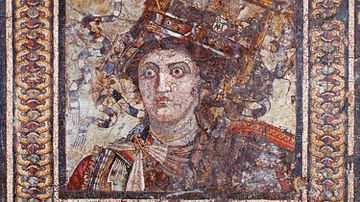
Definition
Berenice II Euergetis
Berenice II Euergetis (c. 267-221 BCE) was a pre-eminent Hellenistic queen, who ruled together with her husband Ptolemy III (r. 246-221 BCE), when the Ptolemaic kingdom was at the height of its power, dominating most of the eastern Mediterranean...

Definition
Cleopatra VII
Cleopatra VII (l. c. 69-30 BCE, r. 51-30 BCE) was the last ruler of Egypt before it was annexed as a province of Rome. Although arguably the most famous Egyptian queen, Cleopatra was actually Greek and a member of the Ptolemaic Dynasty (323-30...
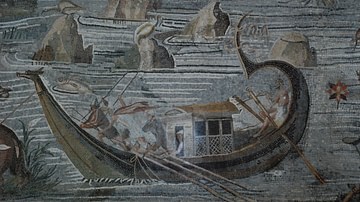
Definition
Ptolemaic Navy
Ptolemaic Egypt was a naval power that exerted influence throughout the Eastern Mediterranean from its foundation in 330 BCE until Cleopatra's defeat by Augustus at the Battle of Actium in 30 BCE. The Ptolemaic Kingdom produced some of the...
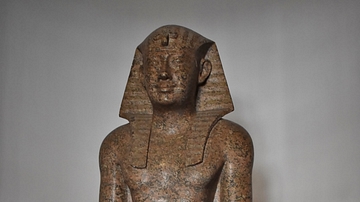
Image
Ptolemy II
Granite statue depicting Ptolemy II. The king commissioned the statue to be made during his own reign, about 285-246 BCE. Son of Ptolemy I Soter, Ptolemy II is known in his role as king of Ptolemaic Egypt. (Vatican Museums, Rome)

Definition
Roman Egypt
The rich lands of Egypt became the property of Rome after the death of Cleopatra VII in 30 BCE, which spelled the end of the Ptolemaic dynasty that had ruled Egypt since the death of Alexander the Great in 323 BCE. After the murder of Gaius...
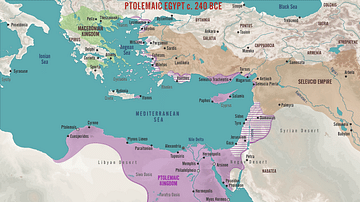
Definition
Ptolemaic Egypt
Ptolemaic Egypt existed between 323 and 30 BCE when Egypt was ruled by the Macedonian Ptolemaic dynasty. During the Ptolemaic period, Egyptian society changed as Greek immigrants introduced a new language, religious pantheon, and way of life...

Definition
Perdiccas
Perdiccas (d. 321 BCE) was one of Alexander the Great's commanders, and after his death, custodian of the treasury, regent over Philip III and Alexander IV, and commander of the royal army. When Alexander the Great crossed the Hellespont...
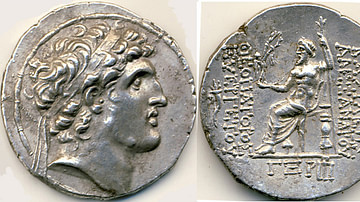
Article
Alexandros I Balas
Alexandros I Balas was a Seleucid king from 152 BC to 145 BCE. As the Seleucid king Demetrius I Soter (162-150 BCE) became more and more unpopular due to his arrogance and drunkenness, it was quite an easy task for the rival kingdoms, such...
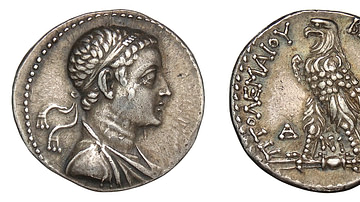
Image
Ptolemy V Epiphanes Tetradrachm
Tetradrachm of Ptolemy V Epiphanes (r. 205-180 BCE). Portrait of Ptolemy on obverse, Ptolemaic eagle on reverse with the legend "Ptolemy Basileus" (meaning "King Ptolemy"). Minted in Phoenicia.
Münzkabinett der Staatlichen Museen, Berlin.
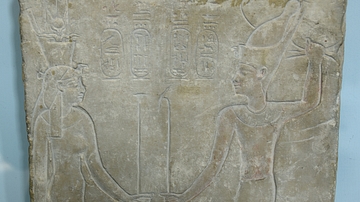
Image
Ptolemy II & Arsinoe II
The stela, from a chapel in the royal couple's honors, shows Ptolemy II and Arsinoe II in a deified form. Their staffs are attribnbutes of Egyptian gods, as is the emblem of life (ankh) held by the queen. Yet, unusually, the King wields a...